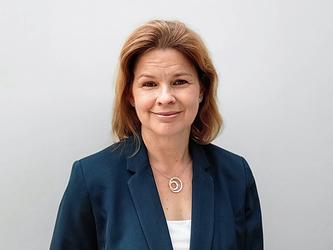Rise in inclusive approaches to British identity, finds NatCen

The findings, which are from the 41st British Social Attitudes (BSA) report, showed the proportion of people who think it is important that someone was born in Britain has fallen from 74% in 2013 to 55% today.
Similarly, those who believe it is important to have British ancestry has dropped from 51% to 39%.
NatCen said that two-thirds ( 68%) of respondents could be classified as primarily having a ‘civic’, inclusive understanding of British identity, while just under one in five ( 19%) think of Britishness primarily in ‘ethnic’, exclusive terms that focus on birth and ancestry.
However, these figures vary according to people’s demographic background, NatCen said, with those aged 65 and over ( 26%) are nearly twice as likely as those aged less than 35 ( 14%) to have a primarily ethnic conception of British identity.
In addition, those with no educational qualifications ( 27%) are more than twice as likely as graduates ( 11%) to have an ethnic conception of British identity and Leave voters ( 27%) were also twice as likely to hold those views as those who voted Remain ( 13%) in the 2016 EU referendum.
The BSA also found a fall in the proportion of respondents who take pride in Britain’s, from 86% in 2013 to 64%.
Also, 53% said they take pride in how Britain’s democracy works, compared with 69% in 2013, while 44% are proud of Britain’s economic achievements, compared with 57% in 2013.
However, 79% of respondents said they are proud of Britain’s achievements in arts and literature, while 77% said the same of the country’s sporting achievements.
Those with a civic understanding of what it means to be British ( 84%) are more likely than those with an ethnic one ( 74%) to express pride in Britain’s arts and literature, but conversely are less likely to be proud of Britain’s history ( 65% compared with 74%).
The findings are based on 5,578 interviews with a representative, random sample of adults in Britain and was carried out between 12th September and 31st October 2023.
Gillian Prior, deputy chief executive at NatCen, said: “These research findings show that while we are less likely to take pride in British history and more critical about its politics, there is still a great deal of national pride in the country’s cultural and sporting achievements.
“This change in attitudes may have been influenced by the increased diversity and shared citizenship within Britain, presenting a portrait of a nation redefining itself.”

We hope you enjoyed this article.
Research Live is published by MRS.
The Market Research Society (MRS) exists to promote and protect the research sector, showcasing how research delivers impact for businesses and government.
Members of MRS enjoy many benefits including tailoured policy guidance, discounts on training and conferences, and access to member-only content.
For example, there's an archive of winning case studies from over a decade of MRS Awards.
Find out more about the benefits of joining MRS here.













0 Comments